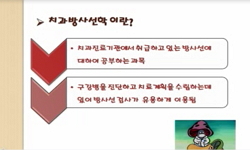이 글은 초기불전에 나타난 인욕의 의미를 해명한 것이다. 대승불교와 달리 초기불전에서 인욕은 체계화된 교의로써 나타나지 않는다. 따라서, ‘참는다’는 칸티(khanti)개념이 문헌 속에서 ...
http://chineseinput.net/에서 pinyin(병음)방식으로 중국어를 변환할 수 있습니다.
변환된 중국어를 복사하여 사용하시면 됩니다.
- 中文 을 입력하시려면 zhongwen을 입력하시고 space를누르시면됩니다.
- 北京 을 입력하시려면 beijing을 입력하시고 space를 누르시면 됩니다.
초기불교의 인욕정신과 청담대종사 = A Spirit of Patience(khanti) in the Early Buddhism and Chungdam(靑潭)'s Thought
한글로보기부가정보
국문 초록 (Abstract)
이 글은 초기불전에 나타난 인욕의 의미를 해명한 것이다. 대승불교와 달리 초기불전에서 인욕은 체계화된 교의로써 나타나지 않는다. 따라서, ‘참는다’는 칸티(khanti)개념이 문헌 속에서 다른 술어와 결합되고 있는지에 주목할 필요가 있다. 초기불전을 분석한 결과, 칸티는 온화, 자애와 빈번하게 결합되며 특히 선(禪)수행과 연관되어 나타나고 있다. 이를 정리하면 다음과 같다. 첫째, 인욕은 나와 남을 유익하게 하는 수행이다. 인욕바라밀처럼 자기희생이 곧 수행이라는 사상으로까지 나타나지 않았지만 적어도 초기불전에서 나와 남을 유익하게 하는 것이 인욕이라는 문제의식은 보이고 있다. 둘째, 인욕수행의 대상은 비난, 욕설, 폭행 등에만 머물러 있지 않는다. 칭찬이나 즐거운 느낌에도 마음이 동요되지 않는 곳에서 인욕정신이 실현된다. 셋째, 인욕은 적정(寂靜), 삼매(三昧), 염(念) 등의 선수행이 바탕될 때 나와 남을 동시에 지키는 적극적인 윤리요, 실천수행의 길이 된다.
청담대종사의 인욕사상은 그의 마음론에 바탕하고 있다. 곧 마음은 조건적이고 상대적인 ‘나’가 아니라 주객을 넘어선 참생명이요, 절대자유요, 완전한 것이므로 나와 남의 구별자체가 무의미한 경지를 지향한다.
다국어 초록 (Multilingual Abstract)
This paper aims to explicate the meaning of patience(khanti) in the Early Buddhism and Chungdam (靑潭), a Seon(禪) Priest. But, Khanti is not expressed systematical doctrine, for instance the Noble Eightfold Path(八正道). Accordingly, it is requ...
This paper aims to explicate the meaning of patience(khanti) in the Early Buddhism and Chungdam (靑潭), a Seon(禪) Priest. But, Khanti is not expressed systematical doctrine, for instance the Noble Eightfold Path(八正道). Accordingly, it is required various approaching method to explicate the meaning of khanti in the Pāli Canon and chinese Agamas. I basically adopt comparative analysis of the Pāli and Chinese Text, especially I paid attention which together with the concept of khanti, for example mild(soracca), affection(metta), mindfulness(sati), concentration (samādhi). This result is summarized below.
First, Khanti is practiced for the benefit of oneself and other person. Second, Khanti means not only endure torment or persecution but also settle oneself from praise. So, Khanti means that controlling mind by meditation. Therefore the practice of Khanti is not passive but active moral principles.
Chungdam's Thought about Khanti is derived from his Ma-um[心] theory. By means of the theory, Ma-um means that perfect, immortal, everlasting life itself. In Ma-um, there is not difference of oneself and other, subject and object. Because, what he said Ma-um is based upon emptiness[sunna 空] and a spirit of Seon, that is free mind.
동일학술지(권/호) 다른 논문
-
- 경상국립대학교 청담사상연구소
- 김선근 ( Sun-keun Kim )
- 2005
-
- 경상국립대학교 청담사상연구소
- 김현남 ( Hyun-nam Kim )
- 2005
-
- 경상국립대학교 청담사상연구소
- 윤종갑 ( Jong-gab Yun )
- 2005
-
- 경상국립대학교 청담사상연구소
- 노권용 ( Kweon-yong Roh )
- 2005




 KISS
KISS






